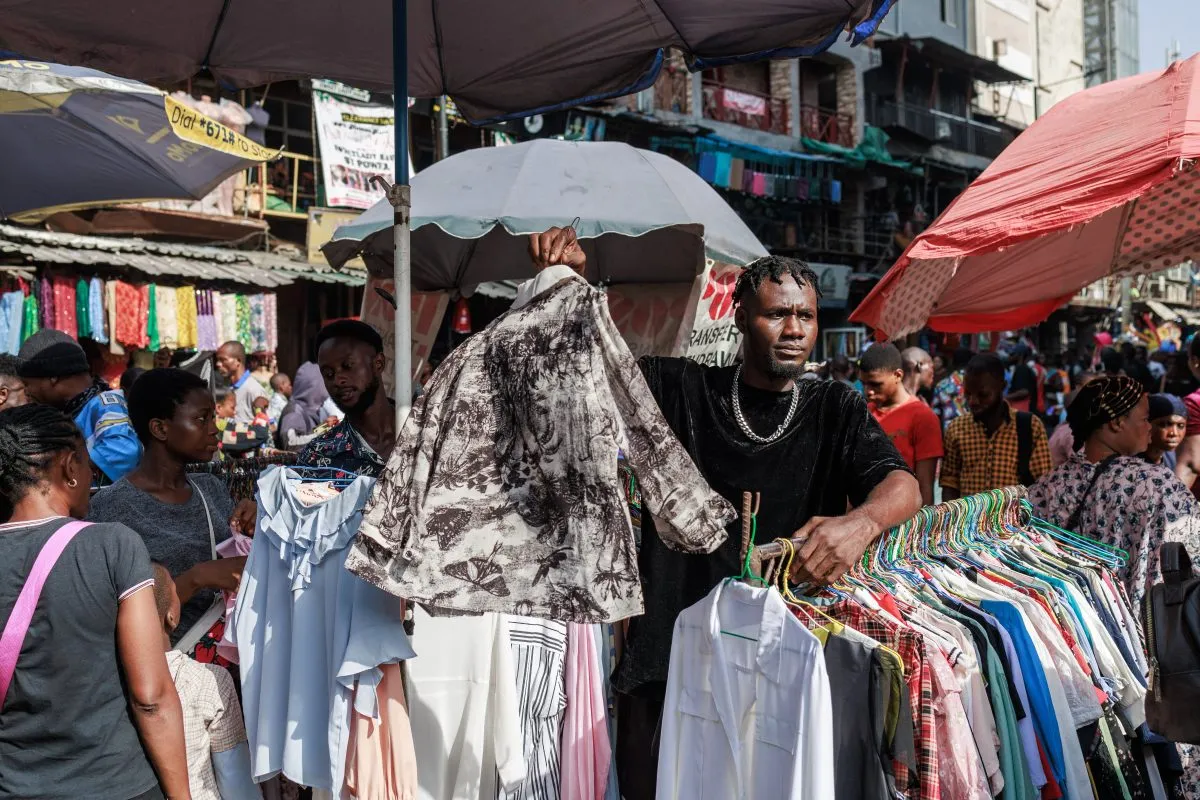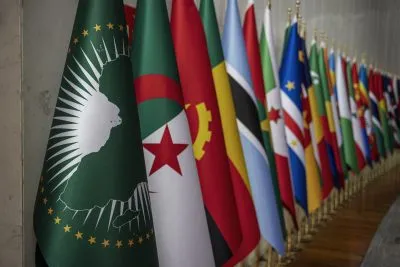In October last year the Nigeria-focused fintech Moniepoint became Africa’s newest “unicorn” after raising $110m in a Series C funding round that valued the company at over $1bn. While tighter monetary conditions since 2022 have led to a drop in the amount of venture capital funding flowing into Africa’s tech and fintech industry, Moniepoint achieving unicorn status was read by many as a sign of the growing maturity of the market.
Reflecting on last year’s landmark funding round, Pawel Swiatek, Moniepoint’s chief operating officer, tells African Business that it shows “we are in a moment of great opportunity” for the African fintech space.
“There are lots of people who are ready and interested and keen to participate in modern financial services. This is facilitated by a combination of cloud-based infrastructure – which means you don’t have to build data centres – almost pervasive mobile broadband coverage, the fact that smartphones are getting super cheap, and if you can’t afford a smartphone, other phones that can work via USSD and still hold value for transactions,” he says. USSD is unstructured supplementary service data – a Global System for Mobile Communications (GSM) protocol that is similar to short message service (SMS).
“Even if you can’t afford a phone at all, you can use the mobile broadband network to access agency banking, the way Moniepoint operates. This combination of infrastructural elements is revolutionary.”
Moniepoint works both through an online banking app and through physical point-of-sale (POS) machines – portable devices that allow small businesses to conduct transactions. POS machines are also carried by hundreds of thousands of Moniepoint agents across Nigeria to facilitate cash withdrawals and other financial activities for individuals who do not have access to internet banking. Moniepoint now serves over 10m businesses and individuals in Nigeria, processing over 800m monthly transactions.
These services have proved particularly valuable for small businesses becauseby using Moniepoint’s POS machines they secure a digital record of their transactions. Swiatek explains that this “robust set of data” means “we have a point of view about how stable their business is, which allows us to offer them operating capital loans – this is rocket fuel for growth.”
Growth plans
Following the Series C round last year, Moniepoint is eyeing further growth in Nigeria before expanding to other African markets.
“The growth in Nigeria is likely to continue – it’s such a big market that there’s so much more of it to cover. We plan on expanding our product portfolio – we recently rolled out Moniebook, which offer business management and bookkeeping tools,” Swiatek tells African Business.
“It’s an added offering to make us the one-stop shop for small business owners. We’ll look for ways to add more things that are useful to those customers.”
Swiatek does note, however, that Moniepoint faces several challenges in achieving this higher growth in Nigeria – particularly when it comes to identity management. A lack of formal documentation in the country, especially in more remote or underserved areas, means it can be difficult for financial institutions to identify and verify unique individuals, making it riskier to offer financial services.
Is biometric ID the future?
Swiatek is encouraged by the growth of biometric identification, to which more than 115m Nigerians now have access. He says the technology could be “revolutionary”.
“In a country where you can’t be sure what people’s names are, let alone other things such as their dates of birth, it is challenging to confidently identify each unique individual,” he explains.
“If you can get to a place where you can do that, it really changes the game in terms of financial services and fund flows – because you can know enough about each person to authorise transactions up to a certain limit,” Swiatek adds. “This helps us offer remote, mobile-based financial services with a much lower rate of identity theft and fraud.”
“Of course, getting over 200m people into the system is quite a mountain to climb. There are also practical questions: how do you fingerprint people in remote areas of the country where in some parts it’s completely unsafe?”
“But you don’t need 100% coverage to achieve these aims,” he says. “It’s a virtuous cycle: the more people that get covered, the more value is offered by the digital economy, and the more people that want to sign up and participate.”
Beyond Nigeria
Moniepoint is also looking to expand into other markets, with Swiatek hoping for this to happen within the next couple of years. He says that Moniepoint will likely look to do this through inorganic growth – acquisitions – and notes that they are already “looking for companies in other countries that do similar things to what we do” with the view to completing some acquisitions.
Swiatek says that “there’s nothing concrete yet” as to which African markets specifically Moniepoint is planning to expand into, although there are a few contenders.
“Kenya and Tanzania have tended to be at the top of the list – East Africa generally. Egypt is always big and interesting. But there are also great stories in other West African countries.”
A crucial part of the decision will depend on foreign exchange risk. Moniepoint is domiciled in the United States and is mainly backed by Western investors, meaning the company’s accounting currency is the US dollar.
This means the company’s profits are highly exposed to fluctuations in naira markets – even if the company is continuing to grow beyond Nigeria, a drop in the value of naira can mean its US dollar profits fall despite this growth.
Swiatek says that “while the naira has now thankfully stabilised, one of the challenges that we always contend with is exchange rate risk.”
“Our international expansion aims are at least partially driven by a desire to diversify and have macroeconomic and forex exposure to other countries and not just Nigeria.”
Want to continue reading? Subscribe today.
You've read all your free articles for this month! Subscribe now to enjoy full access to our content.
Digital Monthly
£8.00 / month
Receive full unlimited access to our articles, opinions, podcasts and more.
Digital Yearly
£70.00 / year
Our best value offer - save £26 and gain access to all of our digital content for an entire year!

 Sign in with Google
Sign in with Google 



